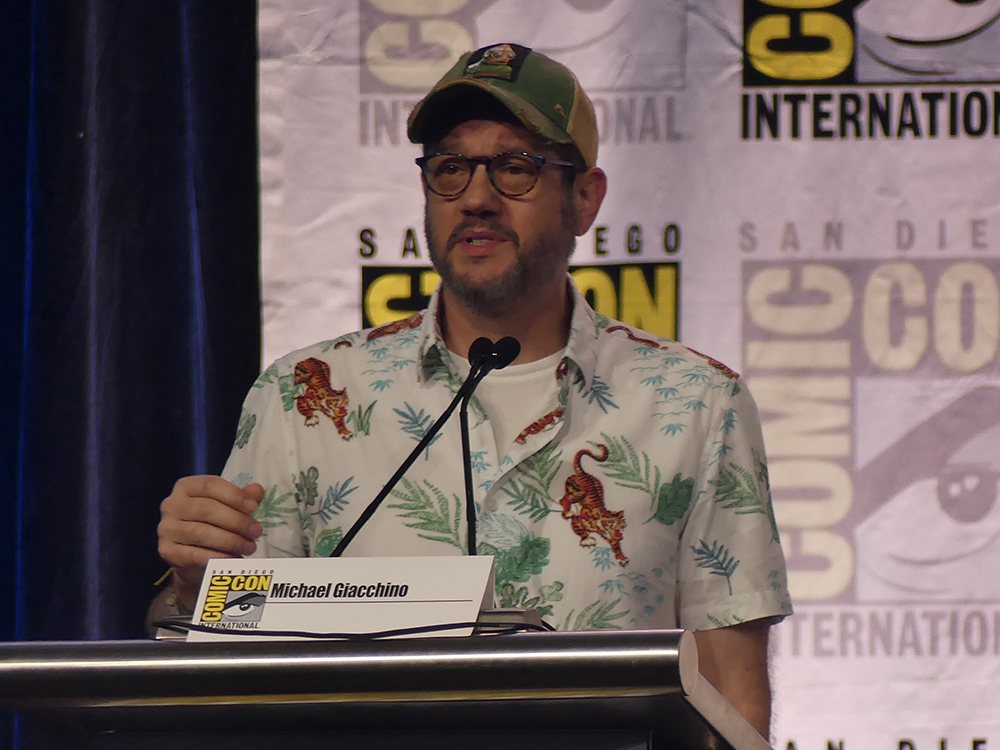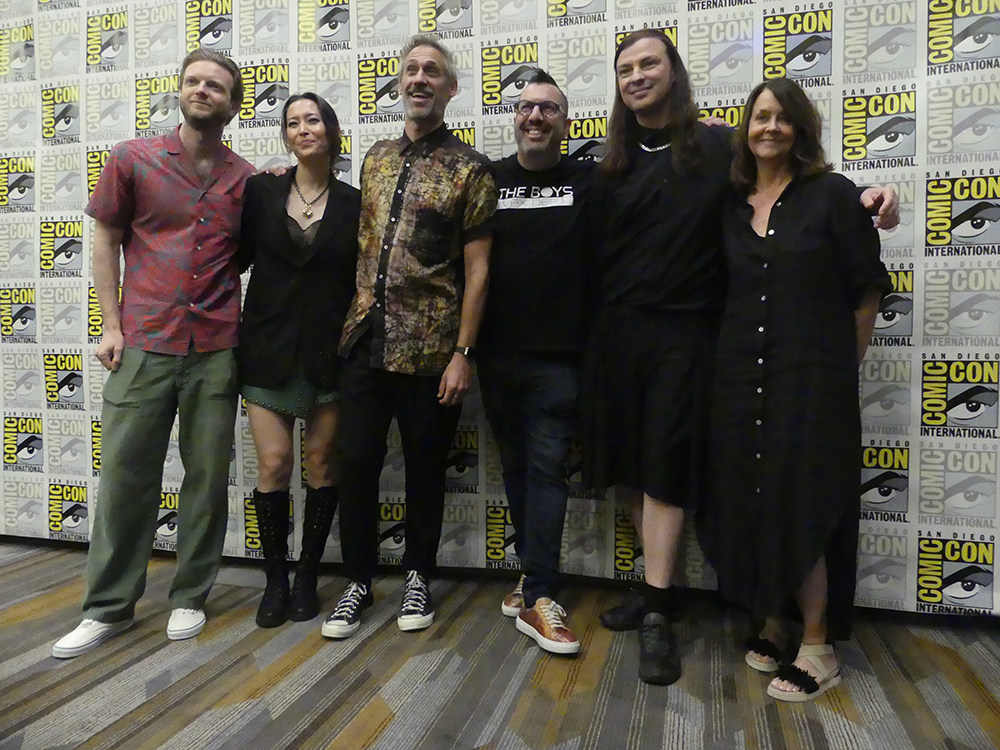Convention - SDCC 2025: Musical Anatomy of a Superhero Returns with a Star Composer Lineup
By Mulder, 14 july 2025

The San Diego Comic-Con has always been a place where fandom, creativity, and cinematic innovation collide, but over the past decade, one of its most enriching and revealing panels has quietly become a must-attend event for serious cinephiles and music lovers alike. The 11th Annual Musical Anatomy of a Superhero and Other Heroes, set for Thursday, July 24, 2025, from 10:00 AM to 11:00 AM in the Indigo Ballroom at the Hilton San Diego Bayfront, is not just another gathering of composers—it’s an invitation into the creative minds that shape the emotional spine of modern mythology. This year’s edition brings together an impressive roster of award-winning composers who have all left their marks on some of the most anticipated and talked-about superhero and genre projects of recent years. The panel includes Ryan Lott (Thunderbolts), Laura Karpman (Captain America: Brave New World), Brandon Roberts (Andor Season 2), and Mick Giacchino (The Penguin), all of whom will be diving into the sonic anatomy of their respective projects with a blend of live discussion and exclusive score clips. Moderated by the always-charismatic and deeply insightful Michael Giacchino, whose recent Oscar win for The Fantastic Four: First Steps only solidifies his place as a modern maestro, the panel will also feature an introduction by seasoned producer and consultant Ray Costa, who has long been a champion of celebrating film music at major events like SDCC.
What sets this panel apart—beyond the sheer talent onstage—is its commitment to exploring not only the technical artistry of scoring but the emotional and thematic storytelling that music carries in a hero’s journey. Over the years, the “Musical Anatomy” panel has evolved from a novelty gathering of composers into a kind of annual summit where fans and professionals alike can appreciate the depth of musical storytelling behind blockbuster cinema. According to past attendees, one of the most treasured moments often comes when composers share early themes that didn’t make the final cut or when they walk the audience through a raw piano sketch that eventually became an orchestral anthem. Last year, for instance, Michael Giacchino played an alternate cue from The Batman that was met with audible gasps in the room, a powerful reminder of how music reshapes perception. With this year’s panel emphasizing “Other Heroes” in addition to traditional superheroes, one can expect deeper reflections on the evolution of the genre and how composers are being tasked not just to evoke grandeur, but to score vulnerability, ambiguity, and even political urgency through sound.

Internet chatter and insider teases suggest that attendees of this year’s edition are in for some particularly juicy reveals. Rumors swirl that Ryan Lott may debut new material from Thunderbolts, possibly giving a first musical glimpse of what could define Marvel’s darker ensemble narrative. Laura Karpman, fresh off an Emmy nomination, is expected to share how she approached a politically loaded storyline in Captain America: Brave New World—a project that reportedly underwent several tonal revisions, making her job all the more intricate and pivotal. Meanwhile, Brandon Roberts’ work on Andor Season 2 is said to include some of the franchise’s most experimental scoring yet, possibly influenced by wartime compositions and analog synth textures, and Mick Giacchino, known for his immersive and mood-forward scoring, will offer a behind-the-scenes look at The Penguin, including how he differentiated the sonic landscape from his father’s landmark work on The Batman. Each of these perspectives adds a unique lens to the conversation, as we see how different studios, tones, and character arcs impact musical direction.
There’s also something symbolically powerful about having Michael Giacchino as the moderator—especially in light of his recent Oscar win. A veteran of the Marvel, Pixar, and Star Wars universes, his presence bridges the past and future of superhero scoring. But his role goes beyond just being a recognizable name; Michael Giacchino has long been a fierce advocate for treating film composers not just as technicians, but as storytellers in their own right. Anecdotes from past panels reveal his knack for drawing out personal stories—whether it’s a composer struggling with creative block on a third-act scene or how a late-night idea saved an otherwise flat sequence. With his guidance, this year’s panel could delve into the more human and often chaotic process behind building a score that resonates globally.

It’s also worth acknowledging how panels like this quietly elevate SDCC’s reputation as more than just a playground for pop culture—it becomes a vital arena for recognizing and demystifying the crafts that fuel our favorite movies and shows. Music is often the invisible hand guiding our emotional response to storytelling, and yet it rarely gets the spotlight it deserves outside awards season. The 11th Annual Musical Anatomy of a Superhero and Other Heroes panel gives it that spotlight, not just through big names, but through meaningful, in-depth dialogue about artistry, risk, and innovation. For fans of film music, for aspiring composers, or even just attendees curious about what makes their heart race during a trailer, this panel has consistently delivered year after year.
In short, this year’s edition of SDCC’s Musical Anatomy panel seems poised to outdo itself. With a diverse and bold selection of projects, a powerhouse moderator, and a room full of fans who understand the impact of a single note played at the right moment, it stands as a true celebration of musical storytelling. Whether you’re there to catch a sneak peek of the Thunderbolts score, to understand how a melody can define a resistance movement in Andor, or to hear how The Penguin found its brooding sonic identity, the panel promises to be one of the richest hours of Comic-Con 2025. And in a landscape increasingly filled with spectacle and noise, it’s refreshing—and necessary—to pause and appreciate the music that makes the magic truly memorable.
Photos : Boris Colletier / Mulderville / SDCC 2024

